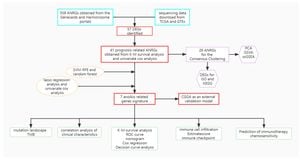Berlin’s public transport workers are set to halt operations on Monday, February 10, following the union ver.di’s announcement of a 24-hour warning strike. This unprecedented move reflects the growing discontent among employees over inadequate wage negotiations with the Berliner Verkehrsbetriebe (BVG).
The strike is scheduled to start at 3 AM and will continue until 3 AM the next day, effectively shutting down buses, U-Bahn, and trams across the city. Jeremy Arndt, the chief negotiator for ver.di, made it clear: "The Verdi wage commission at the BVG rejects the board's offer after extensive discussion with the employees." This decision aligns with the union's mission to demand fair compensation for the workforce.
This planned strike follows recent unsuccessful negotiations between the union and BVG management, where the offer on the table—a wage hike of 15.3% over four years—was deemed insufficient. Arndt's pointed criticism captures the prevailing sentiment among BVG employees, encapsulated in his statement: "The supposed 15 percent wage increase is just smoke and mirrors. We need serious negotiations without number games."
Berlin's public transport has faced disruptions before, with the last strike occurring on January 27, when similar actions resulted in widespread chaos across the city’s transport network. Residents experienced extensive delays, highlighting the reliance on BVG services for daily commuting.
The vast majority of BVG's workforce, over 16,000 employees, echoed calls for higher wages, with ver.di demanding significant increases to meet the rising cost of living. Their proposal seeks monthly raises of 750 euros alongside additional bonuses for shift work. BVG, aiming for financial sustainability, argues the demands are untenable, stating, "The BVG wage offer is significantly below what ver.di demands."
Negotiations have become increasingly strained, with both sides showing little willingness to compromise on their positions. BVG management stressed the importance of working collaboratively with ver.di, stating: "We call on ver.di to negotiate with us and work together on good solutions for employees and the company." Yet, the union's stance remains firm as they prepare for the upcoming strike.
The financial ramifications of these strikes hold heavy significance, not just for the BVG employees but also for the citizens of Berlin. The potential for fare increases looms large, as evidence suggests the state struggles to finance additional spending necessary to accommodate the union's demands. Taxpayers could face the brunt of these wage increases, and officials have already warned of inevitable fare hikes connected to funding challenges.
This latest conflict is part of broader labor issues affecting various sectors across Germany, illustrating how employees demand fair compensation as inflation and living costs rise. The citizens of Berlin are anxiously following developments, fully aware of the potential for disrupted transportation services and the cascading effect it may have on their days.
The next negotiating round is set for February 11, where both BVG and ver.di hope to address the increasing tensions. Until then, residents are bracing for the impact of the impending strike, which not only emphasizes the pressing need for wage reforms but also the fundamental role of public transport workers within the urban ecosystem.



